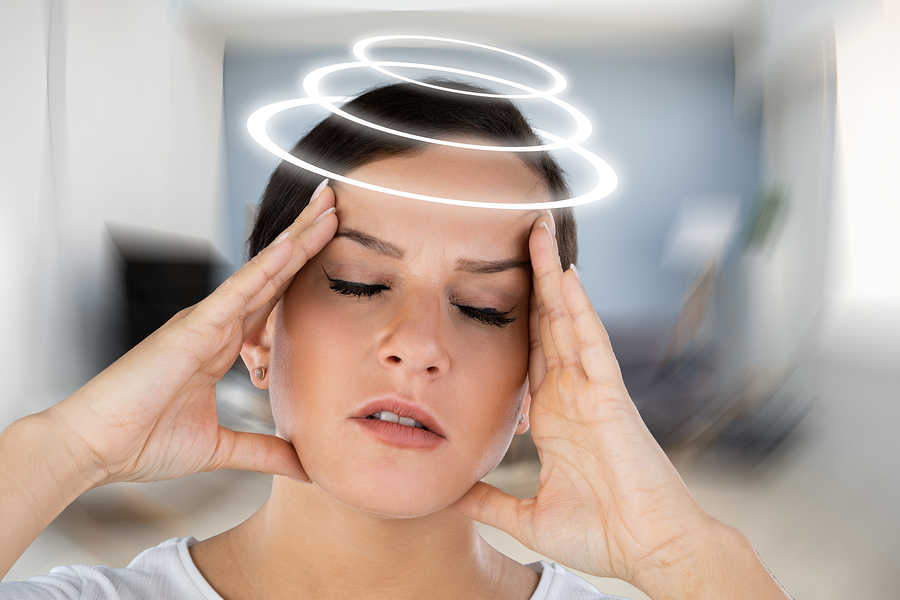Labyrinthitis – the facts
If you have ever been unfortunate enough to suffer from labyrinthitis then you’ll know how scary that out of control feeling can be. Here we take a look at symptoms, causes and treatment.
What is Labyrinthitis?
Labyrinthitis is a disorder of the inner ear. Commonly caused by a viral infection, the delicate structure in your inner ear called the ‘labyrinth’ becomes inflamed leading to dizziness, temporary hearing loss and vertigo. The symptoms can range from mild to severe.
How can I tell if I have labyrinthitis?
The most common symptoms of labyrinthitis include:
- Feeling dizzy – as though the environment is spinning round you
- Feeling sick
- Having pain, ringing, of humming in the ears (tinnitus)
- Experiencing hear loss, either partial or complete
- Feeling unable to stand up (loss of balance)
- Experiencing mild headaches
Your doctor should be able to make a diagnosis from your symptoms but often you will need to be examined and a blood test may be taken. Sometimes MRI or CT scans or a Lumbar puncture can be taken.
Can you catch labyrinthitis?
You can catch a cold or ’flu which may lead to the viral form of labyrinthitis. This is the most common form of labyrinthitis and is usually mild. Viral labyrinthitis usually gets better after a few weeks without treatment and will not cause any lasting damage.
Bacterial labyrinthitis may result from bacteria entering the inner ear from the middle ear usually from an ear infection or occasionally a brain infection such as meningitis. Symptoms are generally more severe and will go on for longer sometimes resulting in long term ear damage.
How to treat labyrinthitis
Symptoms usually improve within a few weeks. Bed rest and medication generally does the trick with occasionally additional medication prescribed to fight infection if needed.
The best way to help treat labyrinthitis is to:
- Make sure to drink lots of water
- Rest in bed
- Refrain from drinking alcohol and/or smoking
- Stay away from noise and bright lights
Medication prescribed for labyrinthitis include:
- Benzodiazepines – these slow down the central nervous system
- Anti-sickness medicine (anti-emetic)
- Corticosteroids – these help to reduce inflammation
- Antibiotics – for bacterial labyrinthitis
What if labyrinthitis persists?
Occasionally some people can have persistent symptoms that last for several months, or even years. If your labyrinthitis is persistent then you may be referred to a physiotherapist for a more intensive type of treatment called vestibular rehabilitation therapy or VRT which tries to retrain the brain to cope with the altered signals that come from the inner ear.
Is it possible to travel on an aeroplane with labyrinthitis?
Although some people have reported that their symptoms worsen whilst flying, it shouldn’t result in any serious damage.
Some things to try while flying with labyrinthitis:
- Use decongestants and nasal sprays
- Try air pressure regulating ear plugs during take-off and landing
- Yawning and swallowing is reported to help during a change in air pressure
- It is not advised to travel in an unpressurised aircraft.
Menière’s disease – similar symptoms
Bear in mind that Menière’s disease has similar symptoms to labyrinthitis and so should be ruled out by your doctor at examination.
Disclaimer
All content on Silversurfers.com is provided for general information only, and should not be treated at all as a substitute for the medical advice of your own doctor or any other health care professional. Silversurfers will not be responsible or liable for any diagnosis made by a user based on the content on www.silversurfers.com and we are also not liable for the content of any external websites or links from or to Silversurfers to any other websites. Please always consult your own doctor if you’re in any way concerned about any aspect of your health.
Melina - Assistant Editor
Latest posts by Melina - Assistant Editor (see all)
- 4 Homemade Sweet Treats for Easter - April 10, 2025
- Bowel Cancer Awareness Month : know the signs - April 5, 2025
- Playground Memories - March 10, 2025
- Banana bread with SunGold kiwis - February 20, 2025
- A tribute to Bob Marley - February 4, 2025




















